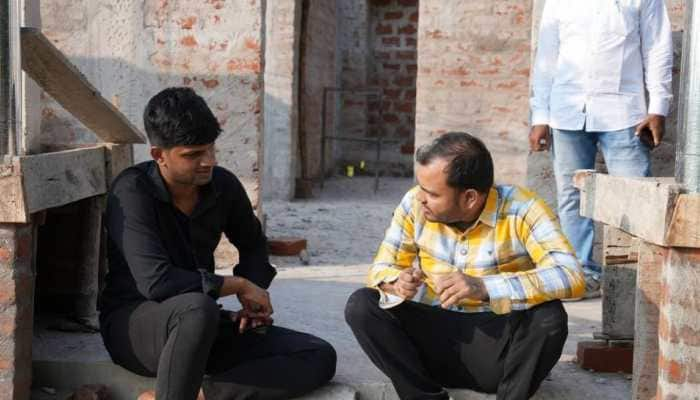China wants more control over CPEC, pushing Pakistan Army to take over: European think tank
Will Pakistan Army bow to Chinese pressure and take over? And will control stop with CPEC?
- A Europe-based think tank has said China is pressing for more control over CPEC
- China's decision to stop funding for 3 road projects aimed at getting Pakistan Army involved, the think tank says
- China's decision after double snub by civilian government
Trending Photos
) Mural outside a tunnel on the Karakoram Highway, which is part of CPEC. (Picture: CPEC)
Mural outside a tunnel on the Karakoram Highway, which is part of CPEC. (Picture: CPEC) NEW DELHI: China's decision to stop funding for three road projects under the China-Pakistan Economic Corridor (CPEC) in Pakistan is not because of corruption as Chinese officials claimed, said a Europe-based think tank. It added that the real reason for the stop to funding is because Beijing wants to assert more control over CPEC project.
A commentary published by Amsterdam-based European Foundation for South Asian Studies (EFSAS) said China's pressure tactics are also aimed at taking the responsibilities for CPEC from the civilian government and hand it over to the Pakistan Army.
And Pakistan's double snub to Chinese officials - turning down Chinese funding for the Diamer-Bhasha Dam and refusing to allow trade in yuan at Gwadar Port - may have had a key role on Beijing's decision to tighten the screws on Islamabad.
"The Chinese are not used to such harsh disagreements which evidently would have made people in Beijing nervous over the future of its vital projects," the commentary said.
"Although Pakistan badly needs Chinese money, Beijing is in no mood to let such withdrawals set a precedent. The current deferral to release funds is temporary and China's way of conveying a diplomatic, yet strong, message to the Pakistanis; 'We will pay, but only on our terms'."
The think tank also interpreted the events as Beijing keenness to give the Pakistan Army the lead role in the CPEC projects. The involvement of the Pakistani Army would also satisfy some of the security concerns which China has, the commentary added.
"... a closer involvement of the Military on political issues would have desirable impacts for China as the Chinese consider the Pakistan Army as the epicentre of power in Pakistan and view its involvement with this project as a guarantee of its success."
The EFSAS commentary outright debunked the claim that corruption in the civilian government was the reason China stopped the funding. "This argumentation is very weak, to say the least, as corruption is not a new phenomenon in Pakistani politics... Had corruption been the reason behind the Chinese step, it would, or perhaps should, have happened in July, when in the context of the Panama Papers, the former Pakistani Prime Minister Nawaz Sharif and his relatives were charged with financial irregularities and corruption," the commentary said.
"The decision to halt funding has, therefore, all the ingredients of being a temporary punitive step to affirm control over the situation," the piece concluded.
Stay informed on all the latest news, real-time breaking news updates, and follow all the important headlines in india news and world News on Zee News.
Live Tv







)
)
)
)
)
)
)
)
)
)
